Dashword and Semrush are both powerful tools, but their strengths lie in different areas. We’ll help you analyze your SEO needs and choose the one that empowers you to achieve your online goals.
Comparison Dashword and Semrush
In today’s competitive digital landscape, harnessing the power of SEO is non-negotiable for online success. Both Semrush and Dashword offer compelling solutions to elevate your SEO game, each boasting unique strengths and catering to specific needs. This detailed comparison will dissect the core features, advantages, and potential drawbacks of each platform to help you determine the best fit for your SEO strategy.
Dashword
Dashword focuses on empowering content creators and marketers to produce high-quality, SEO-optimized content efficiently. With its intuitive content brief builder and real-time optimization suggestions, Dashword aims to elevate content quality while boosting organic visibility.
Dashword: Overview
Dashword is a content marketing platform specializing in content brief creation, SEO optimization, and content performance monitoring.
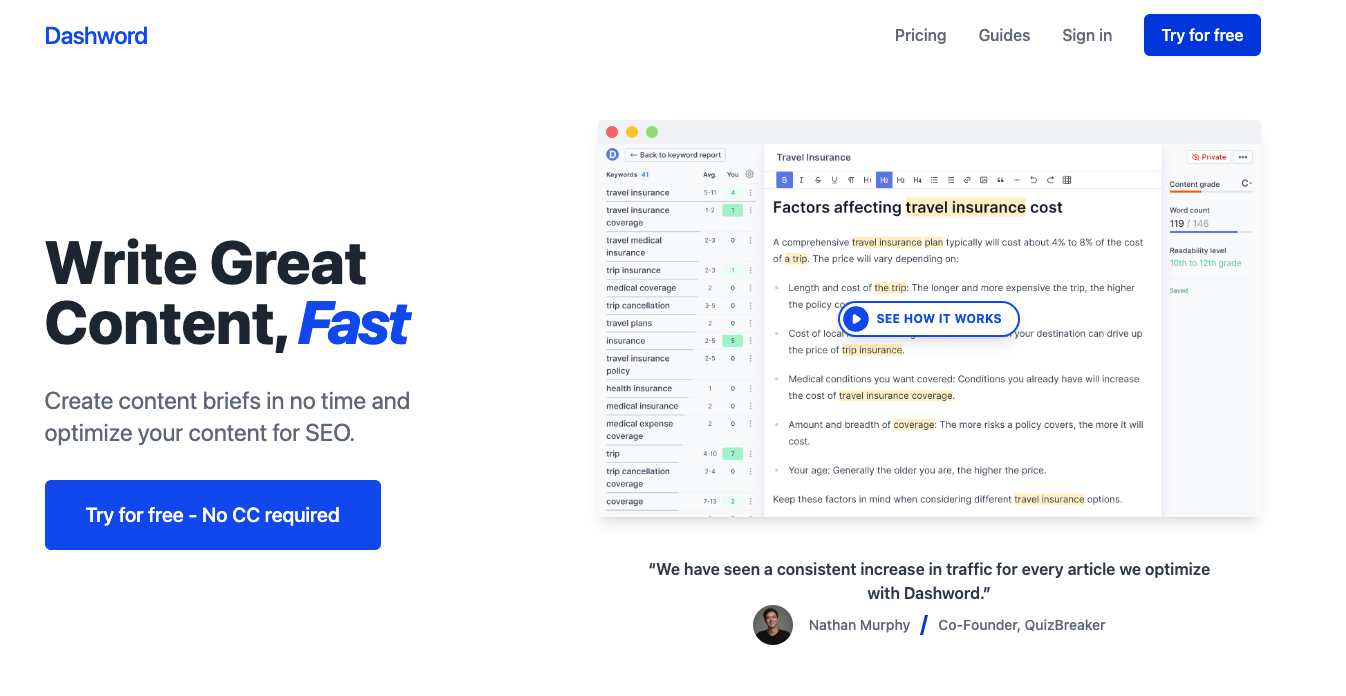
Dashword: What It Does
- Content Brief Builder: Helps create detailed briefs with keyword research, competitor analysis, and content structure suggestions.
- Content Optimization: Provides real-time feedback and scoring based on SEO best practices.
- Content Monitoring: Tracks content performance, identifies underperforming pages, and suggests updates.
Key Features of Dashword
- Competitor Content Analysis: Extracts outlines and key topics from competitor articles for inspiration and strategic content planning.
- Interactive Content Brief Builder: Facilitates collaborative brief creation with an easy-to-use interface.
- Real-Time SEO Feedback: Scores content based on keyword usage, readability, and other SEO factors.
- Automated Content Monitoring: Tracks keyword rankings, traffic trends, and alerts users to content requiring updates.
Who is Dashword For?
Content marketing teams looking to streamline their content creation process.
Businesses wanting to improve the quality and SEO performance of their content.
Agencies managing content creation for multiple clients.
Pros of Dashword
- Content Quality Focus: Emphasizes creating high-quality, well-researched content.
- Collaborative Brief Creation: Facilitates seamless teamwork on content strategy and development.
- Data-Driven Optimization: Provides clear, actionable insights to improve content performance.
- Time-Saving Automation: Automates content monitoring and reporting, freeing up time for strategic tasks.
Cons of Dashword
- Less Comprehensive SEO Features: Lacks some of the all-in-one capabilities offered by Seorocket, such as keyword research and automated publishing.
- Content Optimization Limited to On-Page Factors: Doesn’t offer tools for off-page SEO optimization like link building.
- Pricing May Be Prohibitive for Small Businesses: The Business plan, which includes content monitoring and more extensive features, might be costly for smaller companies or individual bloggers.
Streamlined content brief creation
Real-time SEO optimization feedback
Content performance monitoring and reporting
Collaborative features for teams
Not a full-fledged SEO suite
Focus primarily on on-page optimization
Pricing may be high for smaller businesses
Dashword Pricing
- Startup: $99/month
- Business: Custom pricing (starts at $349/month)
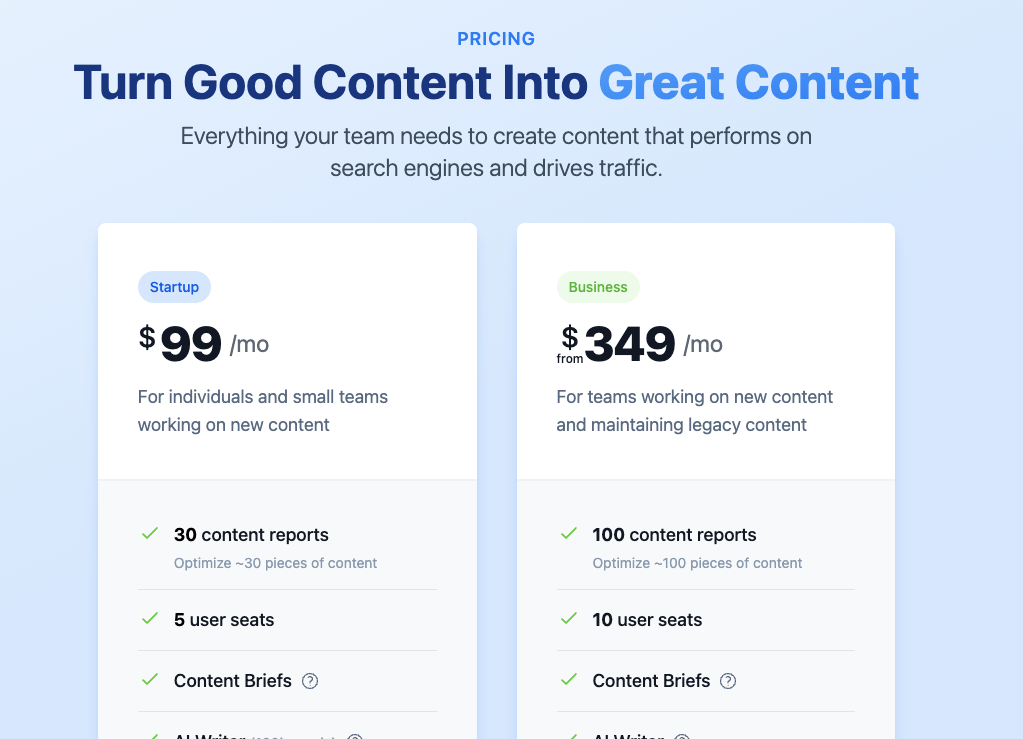
What Users Say About Dashword
Users praise Dashword for its ability to simplify content creation, improve content quality, and increase organic traffic. Many highlight the user-friendly interface and helpful content optimization suggestions.
What’s Missing in Dashword
Keyword Research Tools: Requires users to rely on external tools for comprehensive keyword research.
Content Generation Capabilities: Doesn’t offer AI-powered content writing features.
Limited Integrations: Could benefit from a wider range of integrations with popular marketing tools.
Final Thoughts on Dashword
Dashword shines as a powerful content marketing platform ideal for businesses prioritizing high-quality, SEO-optimized content. Its focus on streamlining the content creation process, providing data-driven optimization suggestions, and monitoring performance makes it a valuable asset for content-focused teams. However, companies seeking a complete SEO suite with keyword research, content generation, and a wider range of features may need to consider other platforms or supplement Dashword with additional tools.
Semrush
Semrush is a renowned and widely-used SEO platform that provides an extensive suite of tools for keyword research, competitor analysis, site audits, and more.
Semrush: Overview
Semrush is a comprehensive digital marketing toolkit that encompasses SEO, PPC, content marketing, social media management, and competitor analysis functionalities.
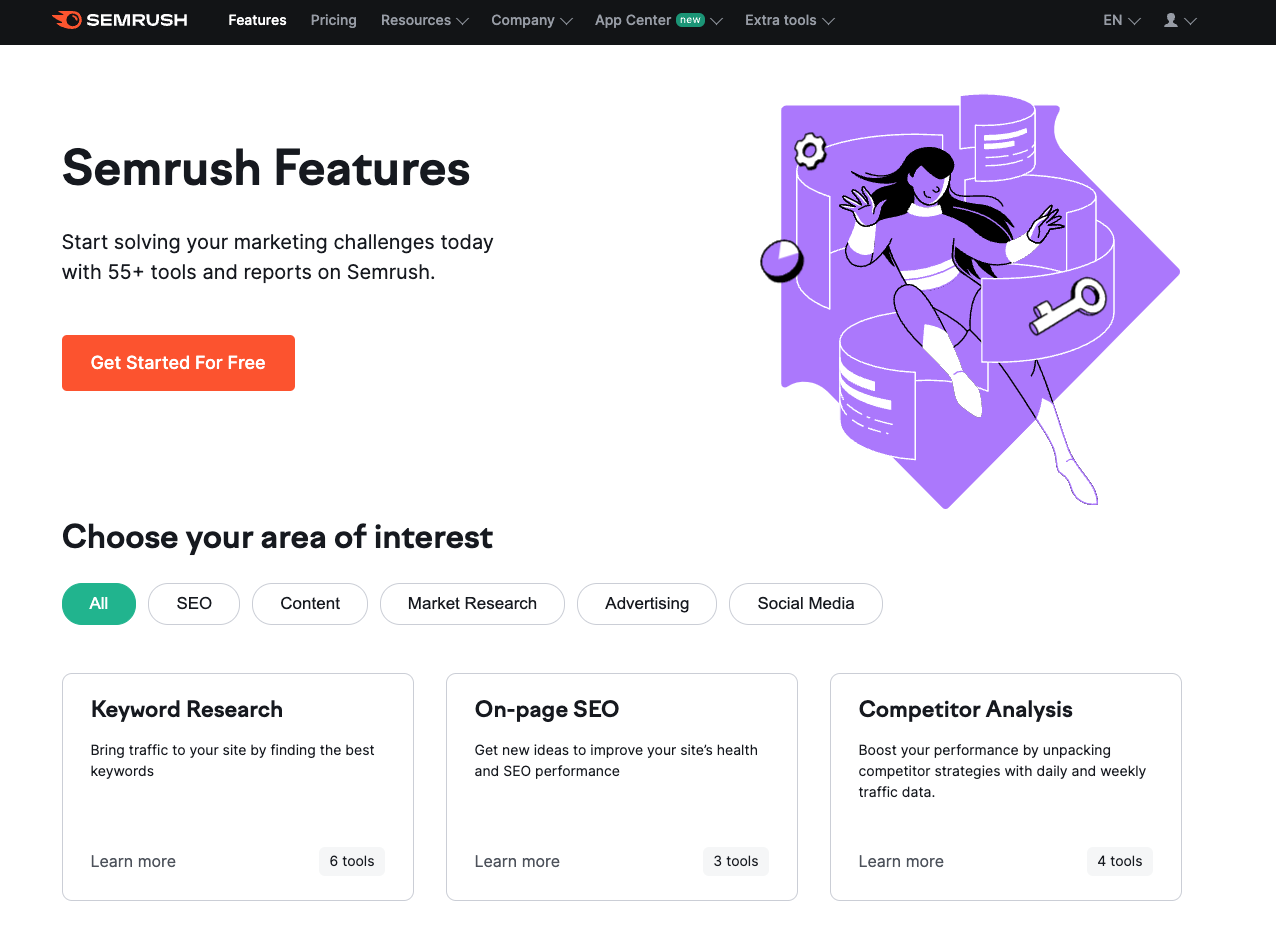
Semrush: What It Does
- Keyword Research: Offers in-depth keyword research with data on search volume, keyword difficulty, and SERP features.
- Competitor Analysis: Allows users to analyze competitor strategies, identify backlinks, and track keyword rankings.
- Site Audit: Conducts technical SEO audits to identify and fix website issues impacting search performance.
- Content Marketing: Provides tools for content optimization, topic research, and content performance tracking.
- Local SEO: Offers features for local businesses to manage listings, track local rankings, and monitor online reputation.
Key Features of Semrush
Comprehensive keyword research and analysis
In-depth competitor analysis tools
Robust site auditing and technical SEO features
Content marketing toolkit for optimization and planning
Local SEO features for businesses with physical locations
Who is Semrush For?
Semrush caters to a broad range of users due to its diverse toolkit:
SEO Professionals: Seeking advanced features for in-depth analysis and optimization.
Digital Marketing Agencies: Managing multiple client campaigns and requiring a comprehensive platform.
Large Enterprises: With dedicated SEO teams and a need for advanced functionalities.
Businesses of All Sizes: Seeking to improve online visibility, outrank competitors, and gain a competitive edge.
Pros of Semrush
- Industry-leading data and insights: Provides access to a vast database for accurate and actionable data.
- Comprehensive feature set: Offers a wide array of tools covering various aspects of digital marketing.
- Advanced reporting and analytics: Enables data-driven decision-making with insightful reports and dashboards.
- Strong community and support: Provides extensive resources, tutorials, and a supportive community forum.
Cons of Semrush
- Steep learning curve: Its extensive functionality can be overwhelming for beginners.
- Higher pricing: Compared to other solutions, Semrush’s pricing plans might be expensive for small businesses.
- Feature overload: While comprehensive, not all users might utilize every feature, leading to potential cost inefficiency.
Extensive data and insights
Comprehensive feature set
Advanced reporting and analytics
Strong community support
Steep learning curve
Higher pricing plans
Potential feature overload
Semrush Pricing
- Pro: $129.95/month
- Guru: $249.95/month
- Business: Custom pricing
Semrush offers three main pricing tiers:
Each plan provides different limits for projects, keywords tracked, and data access. Additional add-ons like Semrush .Trends and Semrush Local are also available.
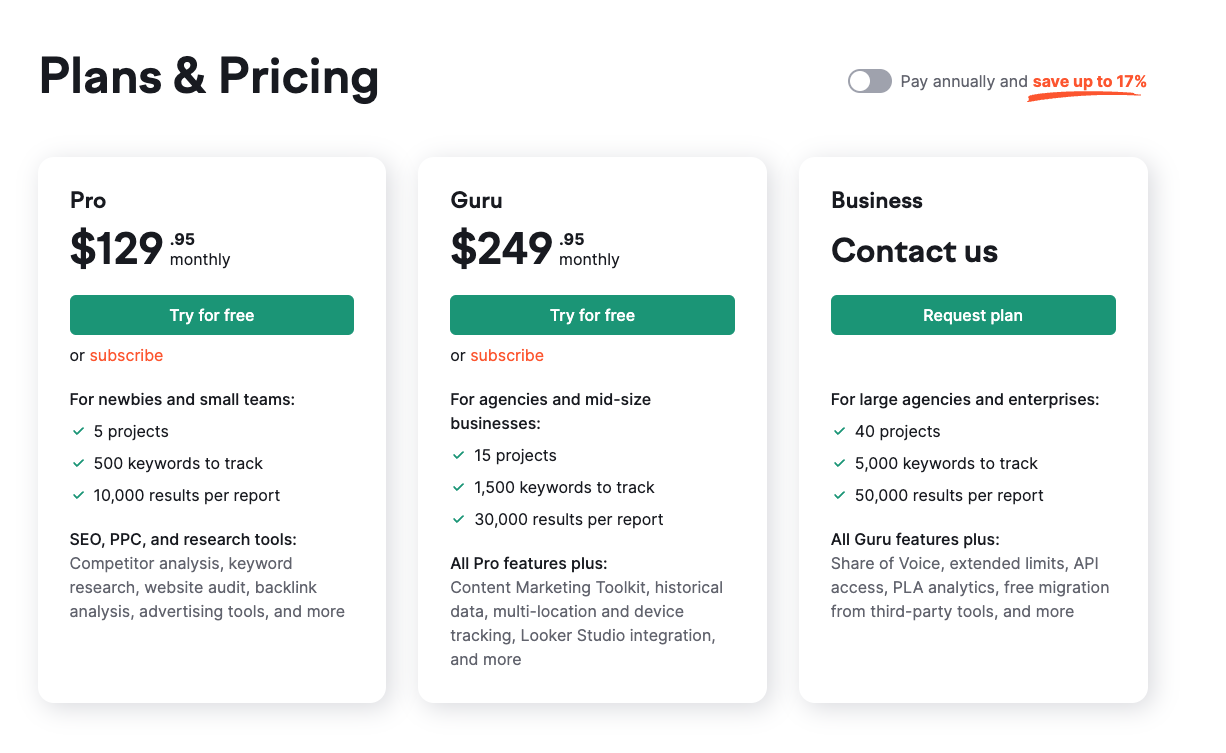
What Users Say About Semrush
Semrush is highly regarded in the SEO community for its comprehensive features, accurate data, and impactful results. Users praise its competitor analysis tools, in-depth keyword research, and actionable insights. However, some users find the platform overwhelming initially due to its vast functionality.
What’s Missing in Semrush
While Semrush excels in providing comprehensive SEO tools, it could benefit from simplifying its user interface further to enhance user experience, particularly for beginners. Additionally, offering more flexible pricing plans tailored to specific user needs might attract a wider range of customers.
Final Thoughts on Semrush
Semrush remains a powerhouse in the SEO landscape, offering an unparalleled depth of features and data for serious SEO professionals and digital marketers. Its comprehensive toolkit and advanced functionalities make it a top choice for agencies, large businesses, and anyone seeking to gain a competitive advantage in the digital realm.
Dashword vs Semrush: Which One Should You Choose?
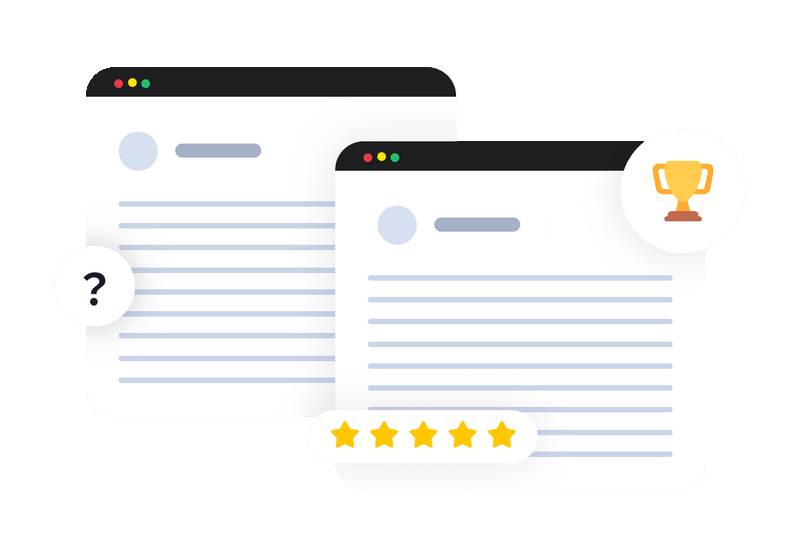
Choose Dashword If:
– You prioritize creating high-quality, well-researched content and want a platform dedicated to content optimization.
– You value collaborative features and need a tool that facilitates teamwork on content strategy and creation.
– You seek data-driven insights and actionable suggestions to improve your content’s SEO performance.
Choose Semrush if:
– You require a comprehensive digital marketing toolkit with industry-leading data, in-depth competitor analysis, advanced reporting, and a wide range of features covering various aspects of online marketing.
– It’s suitable for SEO professionals, digital agencies, large enterprises, and businesses seeking a competitive edge.
search engines ranking patterns to create content that dominates
searches, all without penalty risk.

Why Consider SEOrocket Over Dashword and Semrush?
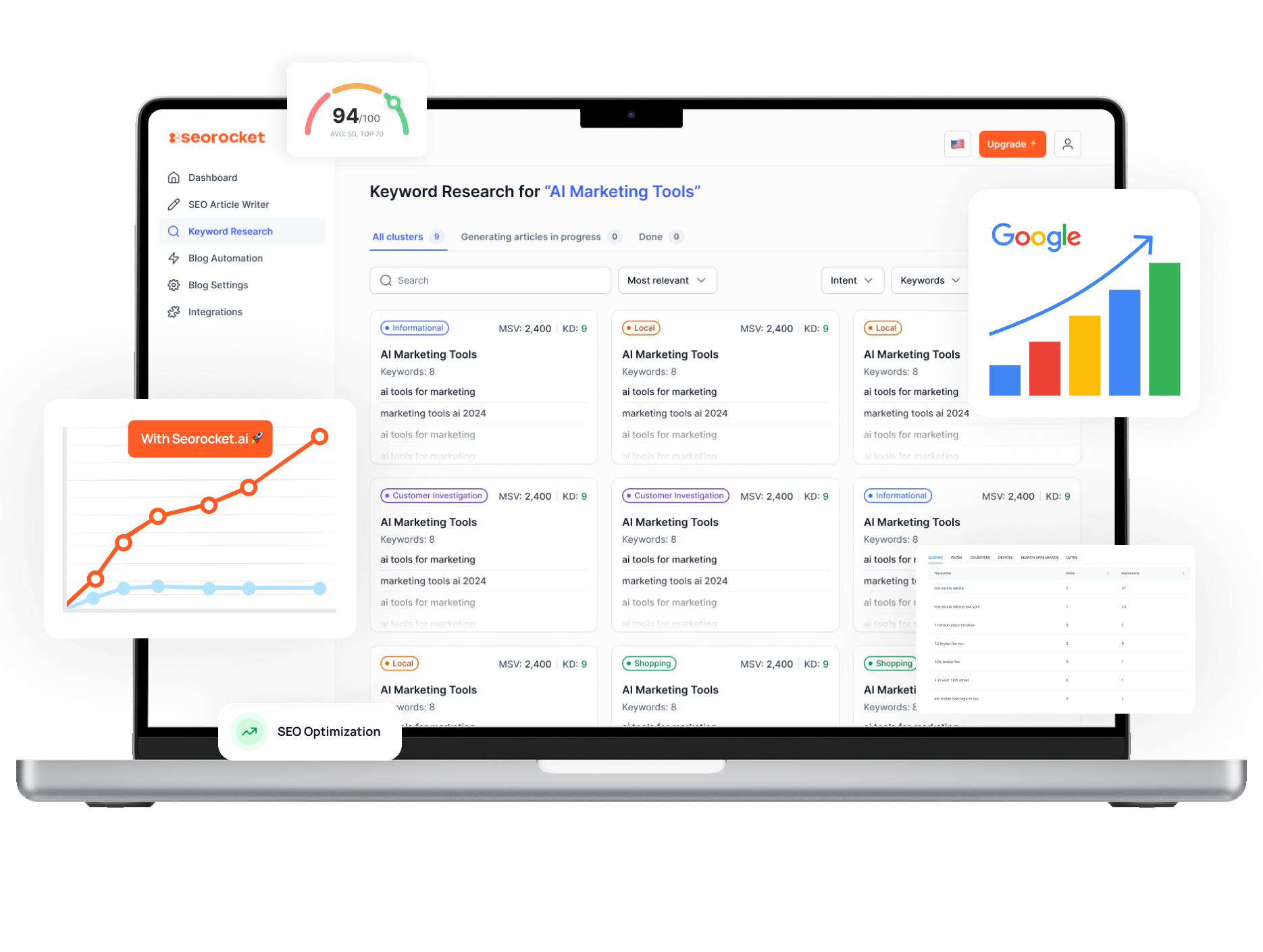
While Dashword and Semrush AI are strong contenders in the content optimization and generation landscape, Seorocket stands out as a comprehensive and cost-effective alternative. Here’s why:
By choosing Seorocket, you can streamline your content marketing efforts, save time and resources, and achieve significant improvements in your search engine rankings.




